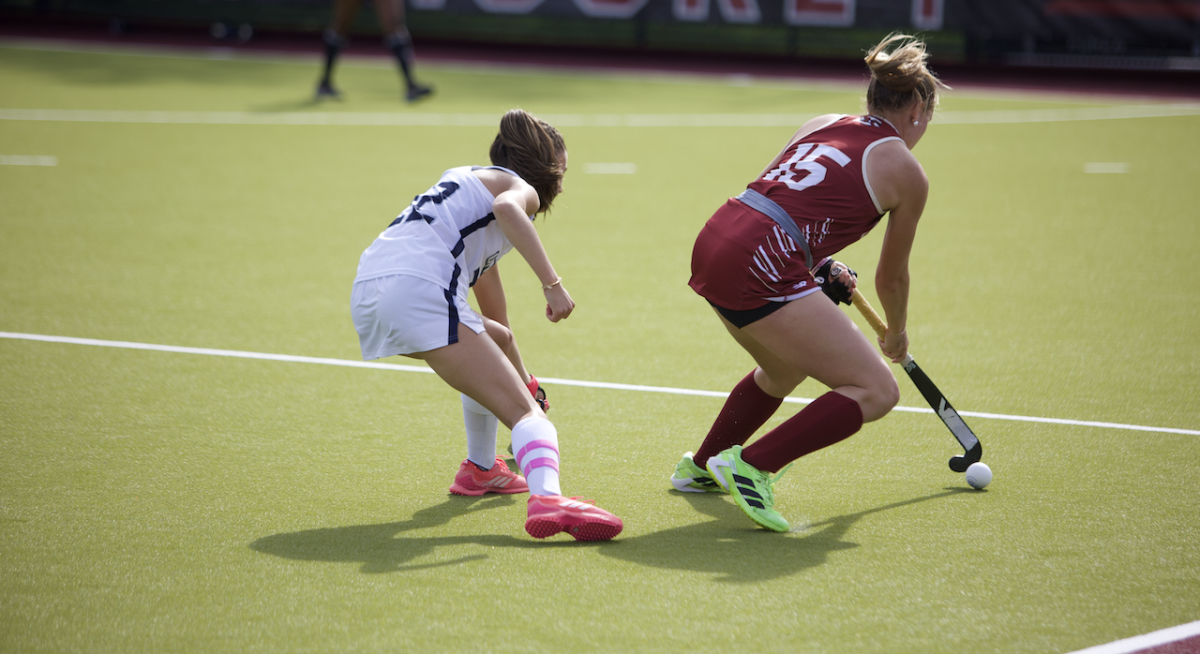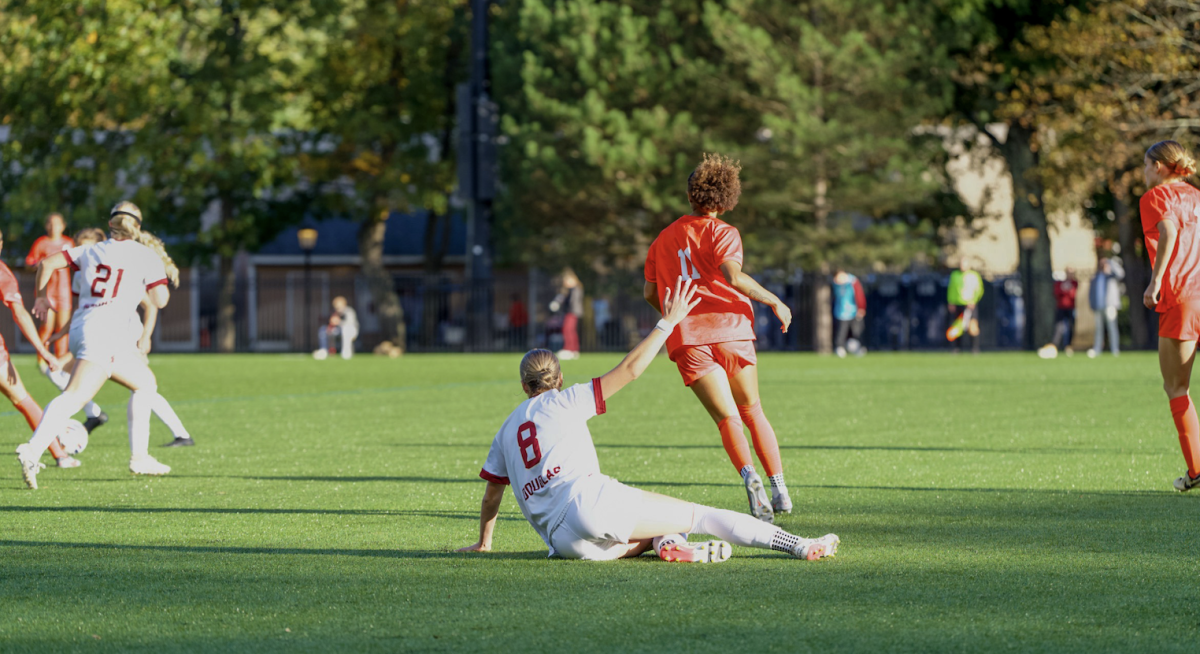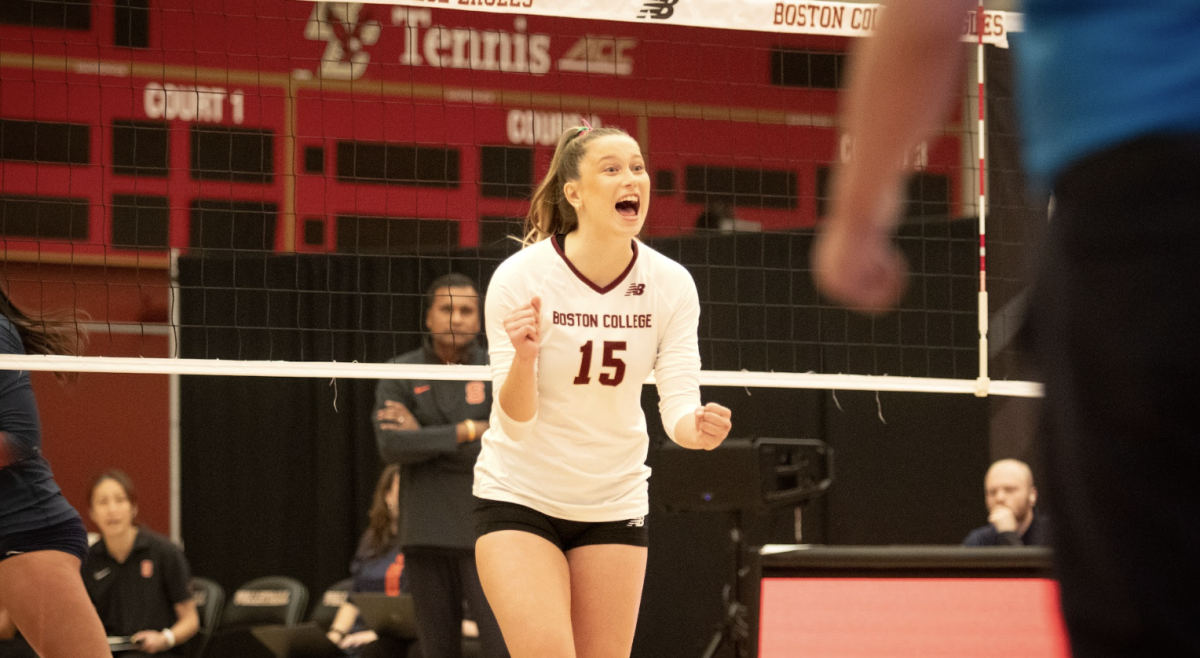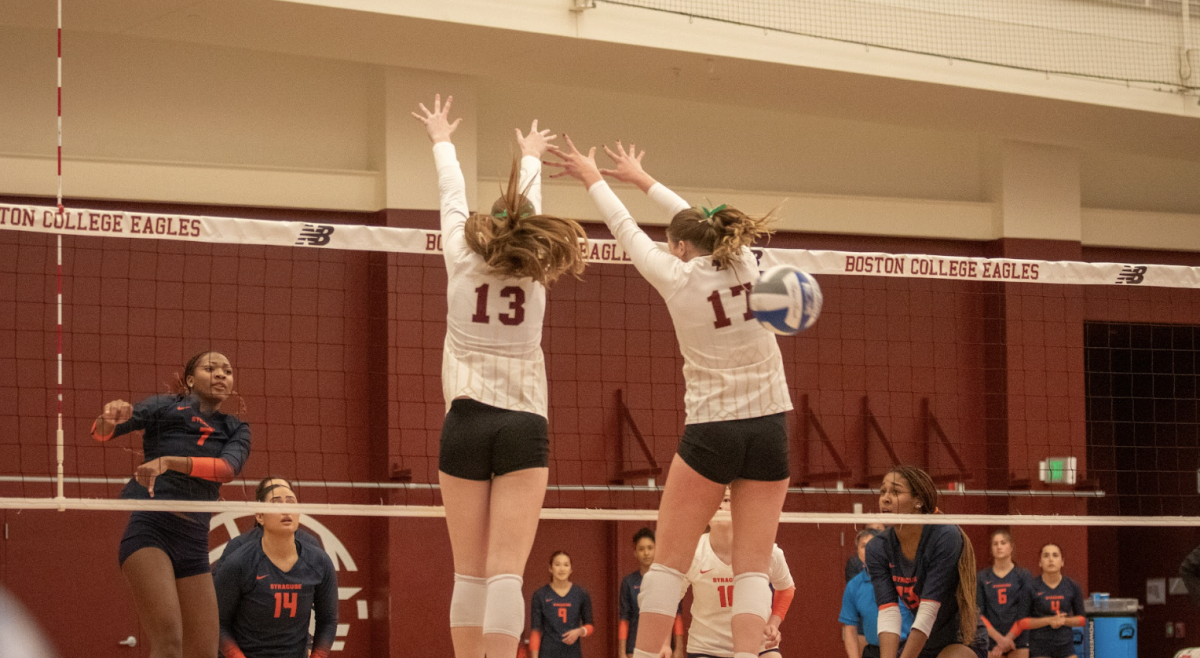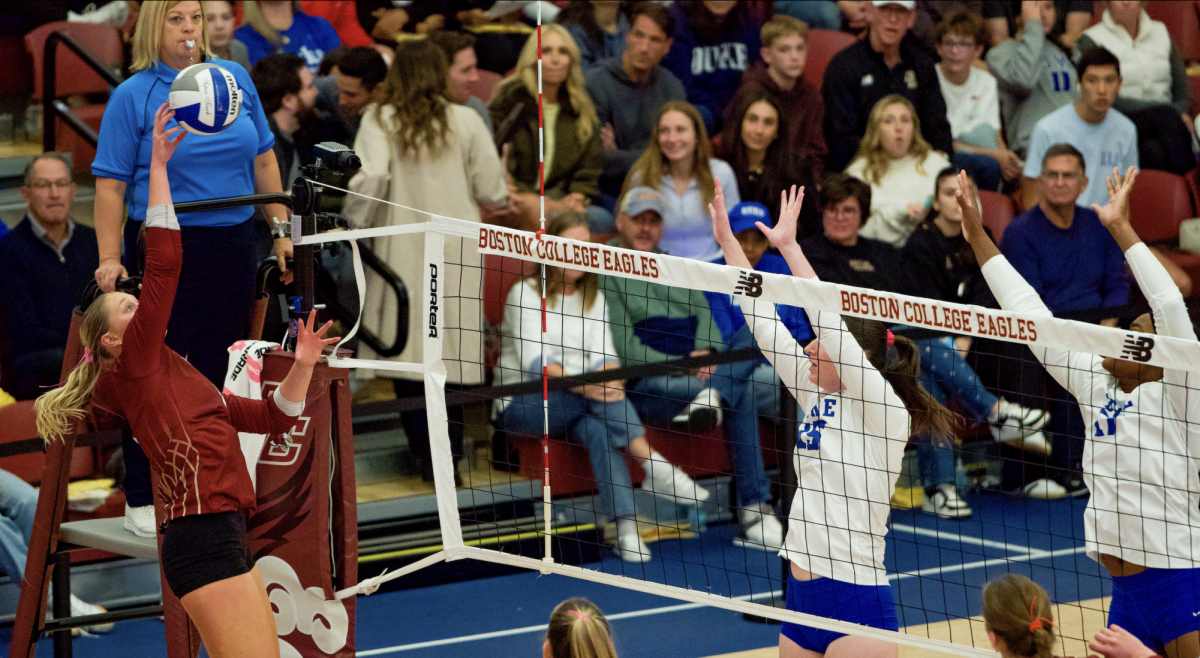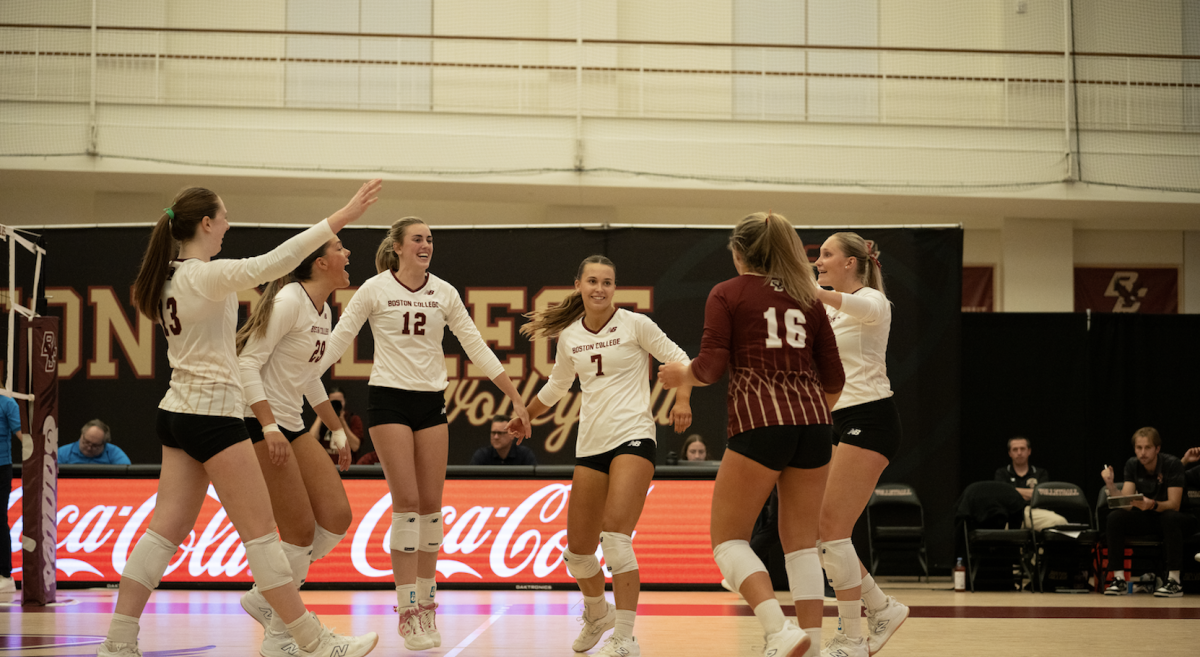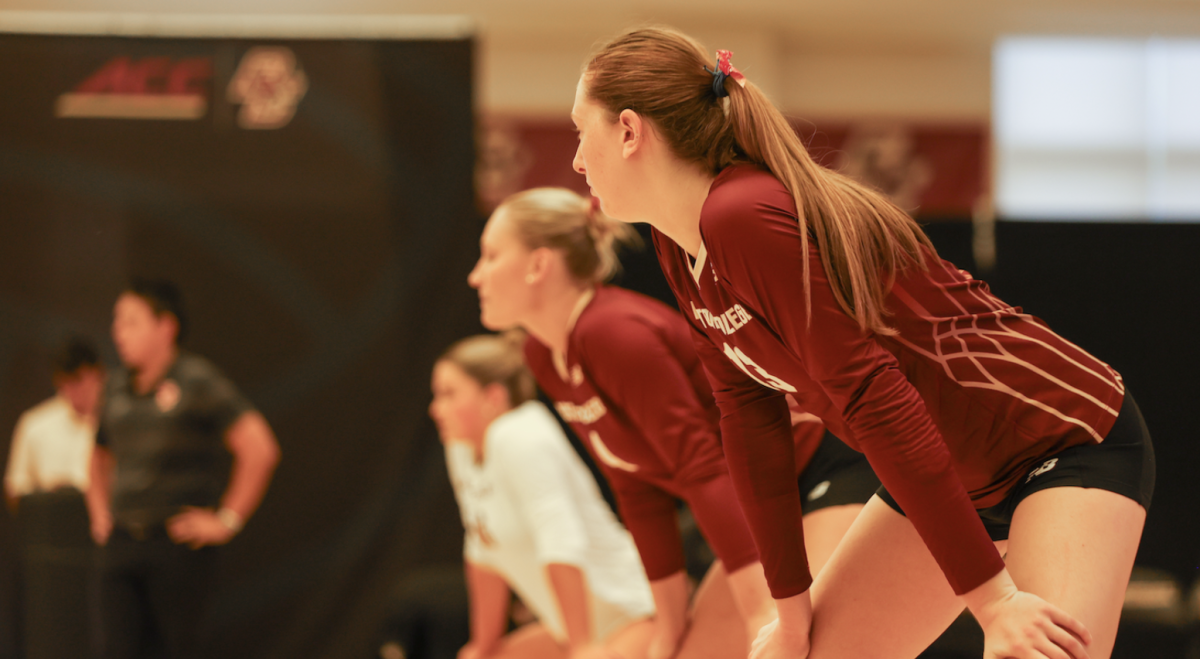Coming off of a woeful seven-win campaign in 2017, Boston College volleyball was an ailing program in desperate need of a change. The Eagles had endured yet another tough season, and Chris Campbell resigned after eight years as head coach—a tenure in which the team never finished with a winning record.
Jason Kennedy, who had spent the previous three years as a member of Southern California’s coaching staff and helped guide the Women of Troy to impressive records, was hired to fill the void. Kennedy was well regarded in the coaching community and clearly had the credentials for the job. Despite the quality hire, there were not many expectations for BC volleyball coming into this season given the struggles that this program had faced for decades.
It was incredibly surprising, then, to see BC get off to such a hot start. The Eagles shined in the early part of the season. It appeared that Kennedy, in just his first year at the helm, completely turned this team around. BC got off to a 9-0 start in non-conference play, and, while these matchups were certainly much easier than the stiff competition that the ACC would provide, it looked on paper like the Eagles were legit. And, when BC won two of its first three conference games, there was less and less doubt that this team had done a complete 180-degree turn and was well on its way to success.
As many likely expected, though, that optimism disappeared once BC ventured into thick of its ACC stretch. The Eagles endured lengthy losing streaks, including seven-game and five-game skids. BC was swept in straight sets on several occasions during these rough patches, but it also came up short in a handful of heart-breaking five-set matches. There were several opportunities in which the Eagles could have picked up more wins in those close games—Wake Forest and Virginia come to mind—but this team ultimately lacked the experience to come through in the clutch. Despite the tough conference slate in the middle of the season, BC was able to close out the year on a positive note by taking two of the last three games to clinch a winning percentage of .500, a monumental figure considering the fact that the Eagles last eclipsed that mark in 2004.
BC was able to perform well thanks to strong performances from a number of players, but it was sophomore Clare Naughton who shined throughout the season as the best overall player for the Eagles. Naughton was a force on the offensive end as she led the team with 268 kills and additionally recorded 14 service aces. She was clearly a star on offense, but she made an impact on defense as well by tallying 135 digs and 43 blocks. Not only was Naughton the best player on the court, but she was also the most improved. Last year, Naughton was a freshman who made only five starts and recorded just 57 kills and 25 digs. The drastic improvement in numbers speaks for itself—Kennedy clearly saw something in the rising sophomore and she was able to flourish in his system. Naughton was an all-around contributor, and she will likely continue to grow as a player and lead the Eagles to future success.
However, it wasn’t all Naughton. Cat Balido was second on the team in kills with 255. On the defensive end, Jill Strockis and Makenzie Morrison recorded impressive totals of 394 and 384 digs, respectively. Amaka Chukwujekwu once again led the team in blocks this year, this time with 99, and Jane Dejarld was always there to lend a helping hand, as she recorded 714 assists. Every player on the Eagles made meaningful contributions, and, as a result, this team became a tight unit with a wonderful chemistry.
One cannot forget freshman Jewel Strawberry, who stepped in and filled numerous roles for BC. The Tallahassee native thrived as an outside hitter, picking up 215 kills, which translates to 2.44 per set. Strawberry also picked up slack on the defensive side as she tallied 135 digs on the season. It’s difficult to make an immediate impact as a rookie, but that’s exactly what Strawberry did, and she’ll be a pivotal part of Kennedy’s core in her next three years on the Heights.
In most areas, BC was quite solid and put up comparable and sometimes superior, numbers to its opponents. But, there is one area that sticks out on the defensive end—blocking. The Eagles recorded 52 less blocks and 80 less assists than their opponents while committing 12 more errors. Besides Chukwujekwu, Ally Mullen recorded 77 blocks, but BC needs to improve in this area in the coming seasons in order to alleviate some of the pressure off of Chukwujekwu and Mullen.
Although the Eagles did not close out the season strong, there are plenty of reasons to be optimistic about this program. In just his first season, Kennedy steered BC in the right direction amid a big rebuild. Reaching the .500 mark is a tangible sign of progress and is very impressive considering the fact that this program has struggled immensely in recent history, especially since joining the ACC in 2005. Only two seniors are departing—McKenna Goss and Camille Oemcke—as the Eagles are returning almost all of their core players and will be able to further develop their talent.
While BC has not announced its recruiting class, there’s still likely a much higher appeal for rising freshman to join the Eagles with Kennedy running the show. The program is on the upswing, and better recruits will soon flock to BC, further fueling the rise. Bringing this team back to .500 was a remarkable feat for Kennedy to accomplish in his first year. The team excelled in non-conference play, played well at home, but mostly faltered on the road and against staunch ACC competition.
It may take some time for BC to figure out its ACC opponents, but, overall, the stock of this team is definitively on the rise. With most of the core back, don’t be surprised next year if the Eagles finish above .500 and start reaching for milestones that haven’t been seen in the program’s history.
Featured Image by Jonathan Ye / Heights Editor



